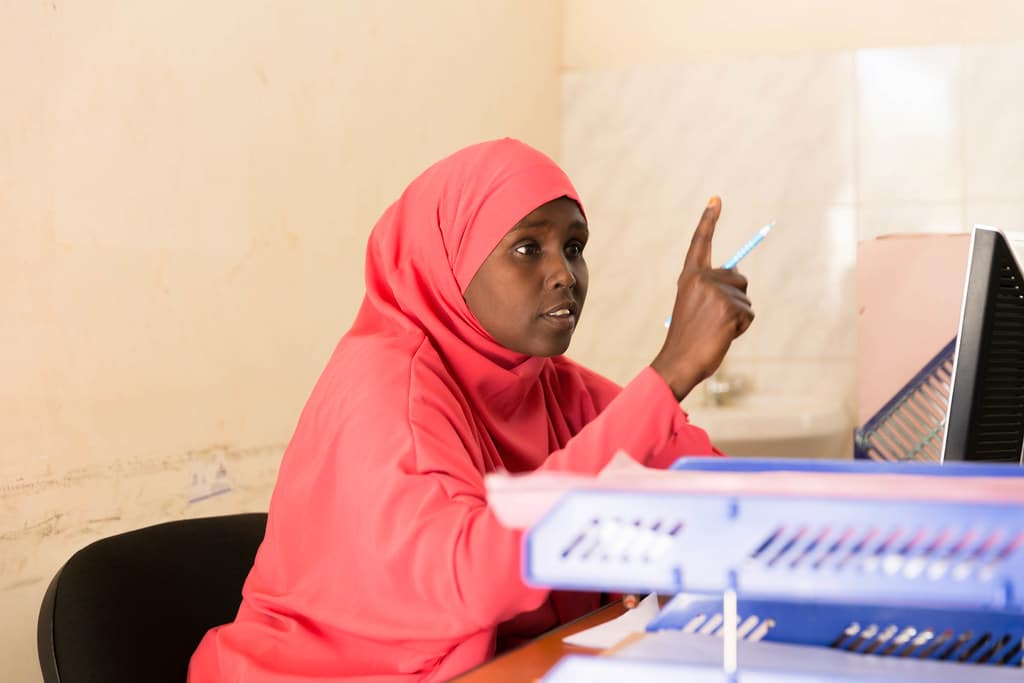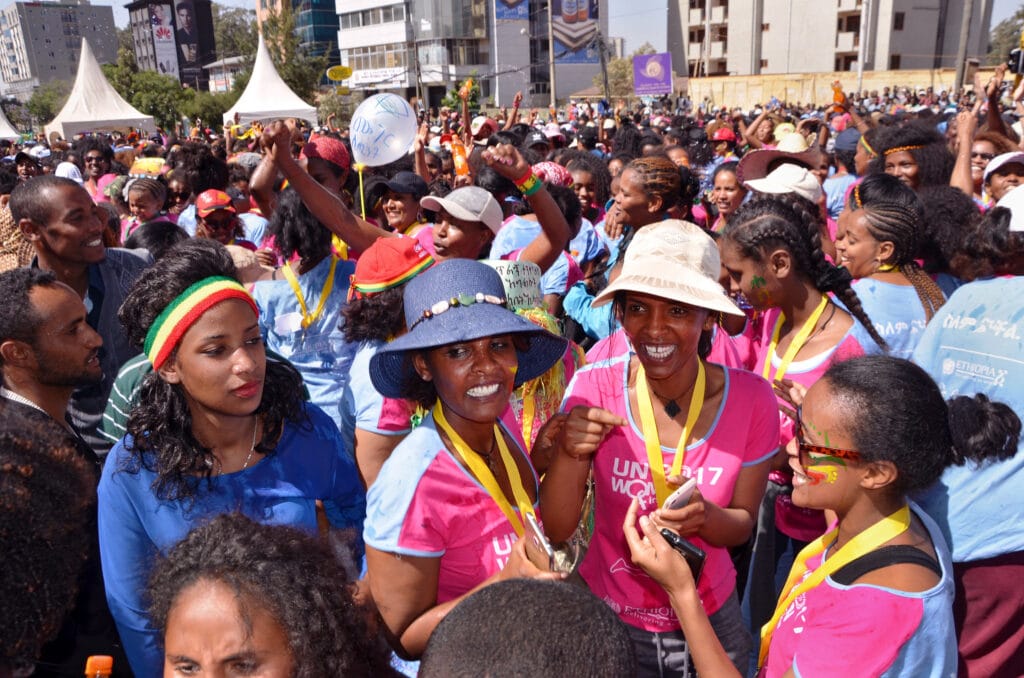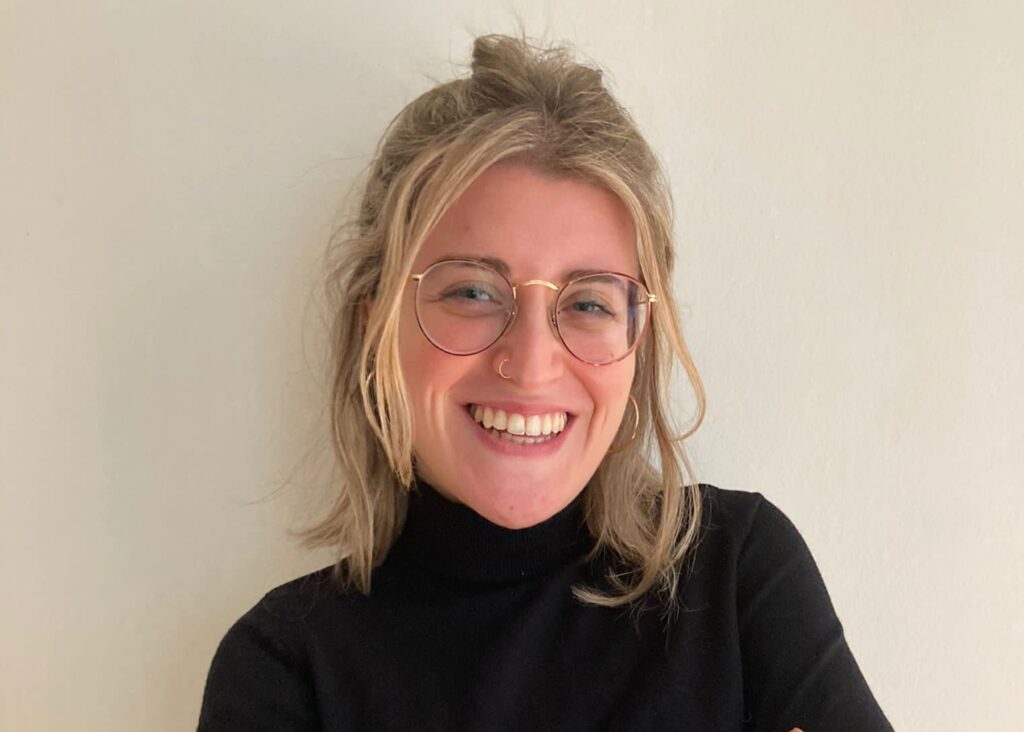Getting research on gender equality out of the ivory tower
08-03-21

Academia is often connected to images of privilege and intellectual exclusion, so how can academia contribute to gender equality and combat violence against women? In honor of International Women´s day – 8 March – our intern Elena Adamo, African Studies student and aspiring researcher, interviewed Lars Engberg-Pedersen, senior researcher at DIIS and project leader of the Danida funded project GLOW – Global Norms and Violence Against Women in Ethiopia.
Academia is often connected to images of privilege and intellectual exclusion. We usually think about scholars as sitting in their ivory tower, out of touch with the real world, unwilling to influence policies and practices. Nonetheless, senior researcher Lars Engberg-Pedersen argues:
It is true, that policies are often the outcome of political discussions, struggles and conflicts of interest. But research is indeed able to influence policy making.
Engberg-Pedersen is the project leader of the Danida funded project GLOW – Global Norms and Violence Against Women (VAW) in Ethiopia. The GLOW researchers explore the dynamics between policies and practices around VAW at three different levels – global, national and local levels. The ultimate goal is to improve gender equality practices in Ethiopia.
I believe that GLOW research is an excellent example of how academia can escape this image of being trapped in the ivory tower, because it investigates how to translate global norms on gender equality into local practices. In my opinion, academia should take the lead in this regard. Therefore, in honour of International Women’s Day, I decided to ask Engberg-Pedersen how academia can contribute to gender equality and combat VAW.
Unpacking Gender Equality
Anyone who is familiar with gender studies knows that gender equality is a buzzword that needs to be contextualized. Gender equality can be thought of as equal rights and equal possibilities to exercise these rights, but also as the right for diversity, acknowledging the different needs that diverse social groups have. Due to its ambiguity, when talking about gender equality, we should contextualize the term both geographically and semantically.
Lars Engberg-Pedersen agrees;
There is no such thing as a unique set of gender equality norms that automatically diffuse to all corners of the world, he says. Global norms on gender equality are produced at the global level, but in practice, actors all around the world shape those norms in different ways.
Global norms are never stable. They are constantly disputed. Some of GLOW’s work is therefore to look into how global norms change constantly and whom the actors behind these changes are, says Engberg-Pedersen.
GLOW highlights Ethiopia’s efforts to influence global norms production on VAW in order to understand the country´s official views on the VAW norms. Global norms are those norms produced by the international community, such as the Sustainable Development Goals (SDGs). What we know about them is that they aim at driving global development; however, we do not know much about their local relevance, influence and efficiency in addressing local issues. In my opinion, this issue relates to the way Sylvia Tamale further unfolds the concept of global norms. In her new book Decolonization and Afro-Feminism, she refers to decolonizing perspectives that reject the idea of universalism and essentialism around global norms, to enhance South-driven approaches to norms production. As an African Studies student, I have also come to understand that global norms could induce significant social change only with local mediation and influence, as well as by understanding the different agencies at stake in norms production.
The GLOW researchers are keen to investigate how institutions, such as the African Union, can constitute efficient platforms for local actors to engage and frame how gender equality may be understood in Ethiopia. In this way, not only can the African Union become an institutional tool for promoting knowledge of the country´s own understanding of global norms, but also for influencing those norms in their production.
It will definitely help policymakers if they have an understanding of the fact that global norms are not just automatically diffused all around the world, but deeply dependent on the local reality, affirms Engberg-Pedersen.

Unpacking VAW
VAW is a global phenomenon, but, just like gender equality, VAW´s forms and intensity are context-specific. In Ethiopia, VAW is pervasive and it operates at different levels; the family; the community, and ultimately, the state.
I think Ethiopia provides an interesting case for analyzing global norms efficiency because national laws and policies show a profound commitment towards eliminating VAW. However, as explained by Dereje Feyissa here, violence is still perpetuated due to three main variables: ideology, political legitimacy and entrenched authoritarianism.
I, therefore, ask Lars Engberg Pedersen to dig deeper into the issue. He highlights that Ethiopia is particularly affected by two forms of VAW: Marital rape and intimate violence.
Ethiopia’s Prime Minister Abiy Ahmed has done a lot to promote norms against VAW, but there is still a discrepancy between those initiatives and the reality when it comes to violence against women. There are very important local women organisations that are trying to combat VAW. However, we need to distinguish between VAW understood as traditional harmful practices and VAW in the intimate sphere of the family, he says.
Lars Engberg-Pedersen suggests the article The controversy surrounding marital rape by Meron Zeleke, GLOW researcher, to understand why there is a prevalence of marital rape in Ethiopia. CARE Ethiopia revealed that 76.6 percent of the women consulted by the research said they had experienced sexual violence from their partner. This is backed up by other studies and reports.
It is widely acknowledged that intimate violence cases are globally widespread and often silenced by public scrutiny with the justification of “belonging to the private sphere”. On top of that, in Ethiopia, issues such as gaps in rape laws and the Charity and Society proclamation of 2009, exacerbate the issue. The latter is a law introduced in 2009 that restricted the activities of Civil Society Organizations (CSOs) in Ethiopia, undermining the work of those NGOs and organizations that provided space for human rights activism. As a consequence, the law prevented the range of action of that part of Civil Society that advocated for the criminalization of marital rape and for improving Ethiopian legislation around VAW for ten years. The revision of the Civil Society proclamation of 2019 finally introduced new progressive measures that paved the way for more activism. However, there is still a long way to go.
In these times, when global lockdowns have sharply increased cases of domestic violence, Glow research on VAW becomes even more important, as shown by Meron Zeleke in the article We need a national conversation in Ethiopia as Covid 19 hits women hard She vividly exemplifies the widespread abuse of women in Ethiopia during the recent lockdowns and urgently calls for a national response to prompt collaborative conversations for women’s rights. I could not agree more.
I believe that overcoming the universalizing essentialism of global norms paves the way for a more suitable adaptation to local contexts. For this reason, academia has to try to intervene in the public discourse to highlight the many context-specific nuances of VAW, in order to prepare for the intervention of efficient policies to address domestic violence in Ethiopia.
Once again, Glow offers an example of how academia can influence public discourse. Anchinesh Shiferaw, a Glow researcher, discussed the prevalence of VAW on Ethiopia on National Television. Here, he informed the wider public on the issues of VAW and nurtured public awareness on the nature of gender-based violence at home, as well as in the public spheres.
Squaring the circle between research and practices
GLOW aims to produce a deeper, and better, understanding of VAW in Ethiopia. However, GLOW’s work does not end with knowledge production. Professor Engberg-Pedersen assures me:
We want to provide space and funding for national researchers and build capacity for knowledge that can stay in the country and turn into policies and practices, he says.
As soon as the Covid-19 situation allows it, we will disseminate our findings to NGOs, local authorities and others, but also, and more importantly, make our research findings available as a platform for local researchers to engage with the issue and influence the policymaking agenda.
The truth is that no research project´s work should end with research findings. What I have experienced over the past six month as an intern at Danida Fellowship Centre, is that it is a job in itself to disseminate research and turn it into action. In this regard, the Knowledge in Action initiatives , where researchers are given the tools to disseminate research findings to the public, have at role to play in spreading awareness on the link between research, policies and practices. I, myself, wish to pursue a career as a researcher, however, far away from the ivory tower and very much in touch with the real world. The communications training seminar Bridging the Gap. Science for the Public gave me an opportunity to familiarize myself with the challenges that this process entails.

In the future, I am particularly keen to investigate gender issues from decolonizing perspectives, to work towards gender justice through strategies (of communitarianism and solidarity) that reflect the Afrocentric worldview. My consideration is that GLOW is opening a small window to improve gender equality in Ethiopia, through the understanding of VAW´s local dynamics and issues. This modus operandi might help in unfolding the concept of gender equality, which is usually uncritically taken from a Western point of view, and ultimately influence effective local policies and practices.
Go back to our stories
